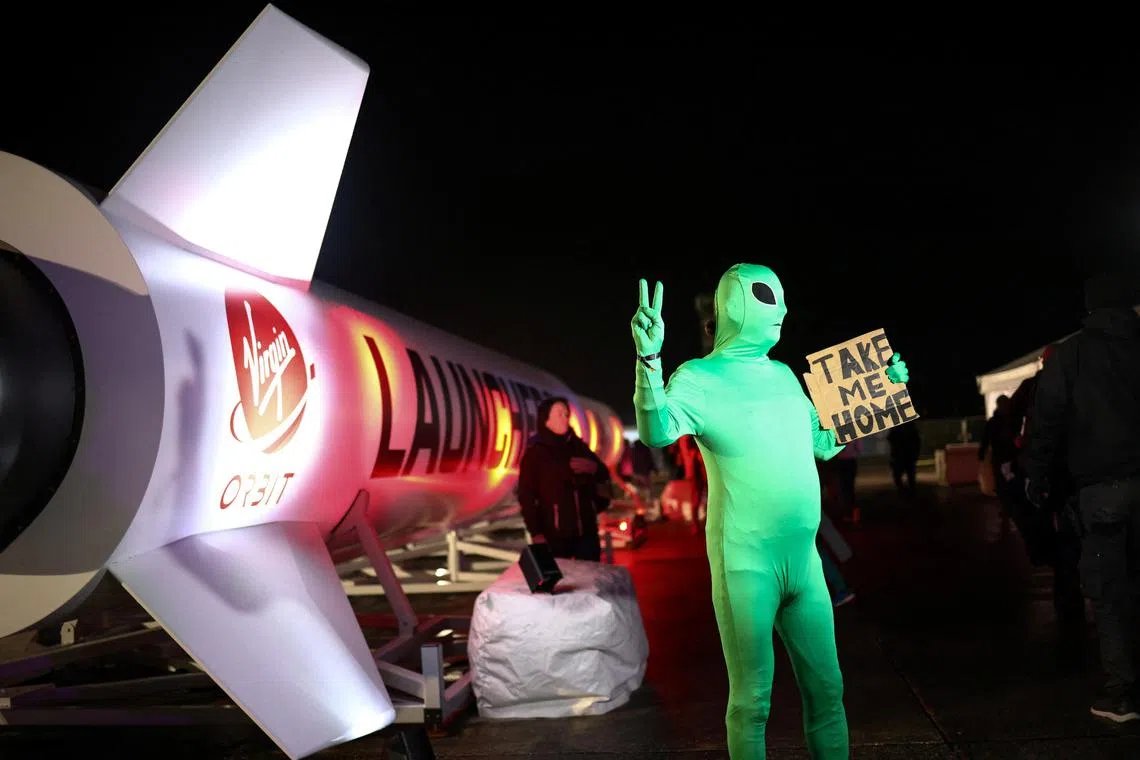Britain’s satellite hopes undimmed by mission failure; another attempt to follow
Sign up now: Get ST's newsletters delivered to your inbox

Virgin Orbit's rocket reached space at 17,700 kmh, but then ran into an "anomaly".
PHOTO: REUTERS
Follow topic:
LONDON - Britain’s hopes of becoming a leading destination for the launch of small satellites remain intact despite the failure of the first mission,
Hours after the plan to launch nine satellites ended when Virgin Orbit’s rocket suffered an anomaly that prevented it from reaching orbit, Mr Shapps said another attempt would follow.
“Space is difficult,” he told Sky News. “The great thing about this technology is that no one was harmed, the pilots came back in the aircraft. It didn’t work. No doubt they’ll pick themselves up, dust themselves off, and they’ll go again.”
Virgin Orbit’s chief executive Dan Hart said in a statement the group would take corrective actions and hopes to return to orbit as soon as a full investigation has been completed.
The rocket was successfully released over the Atlantic from a Boeing 747 that took off from Newquay airport in western England. It moved at 17,700 kmh and reached space, where it separated and ignited the second stage boosters.
“At some point during the firing of the rocket’s second stage engine…, the system experienced an anomaly, ending the mission prematurely,” said Virgin Orbit.
Mr Ian Annett, deputy chief executive officer at British Space Agency, told the BBC that Virgin Orbit would be carrying out “a full review of the data over the next few days to determine exactly what went wrong”.
The failed launch is the latest in a series of setbacks for European-based space missions.
An Italian-built Vega-C rocket mission failed after lift-off from French Guiana
The latest mission had been heralded as a historic first for Britain and Europe, as it would have been the first time satellites had been sent into orbit from western Europe.
Mr Shapps said he remained hopeful for the Newquay site, as well as other potential spaceports in Britain.
“There’s another six locations in the UK, including a couple in Scotland, in Wales, so there’s a big chunk of money and export and jobs to be had from international space,” he said.
For Virgin Orbit, part-owned by British billionaire Richard Branson, it is the second failure since its first launch in 2020. The company has had four successful missions but all from its base in the United States.
Deployment of small satellites has surged amid the drive to create new mega constellations for broadband communications.
Global launches, many of them by privately held enterprises like Mr Elon Musk’s Space Exploration Technologies, have increased threefold to 1,700 satellites a year since 2012 and are expected to double again by 2030. REUTERS

